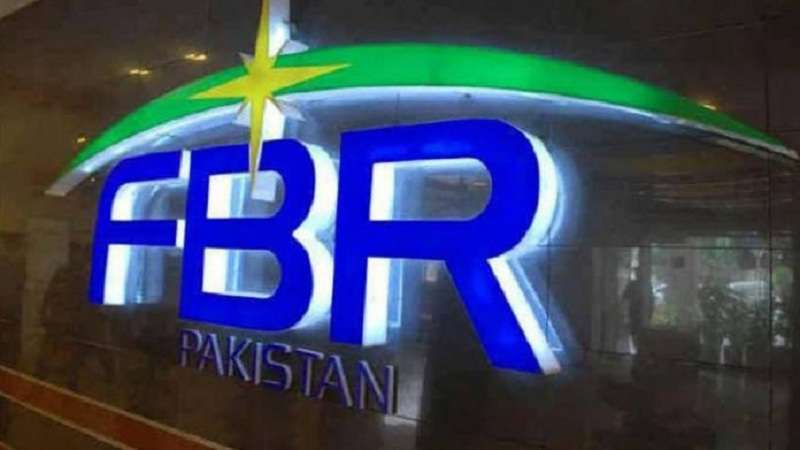Karachi, September 7, 2023 – The Federal Board of Revenue (FBR) has taken a decisive step to tackle the growing menace of fake and flying invoices, a practice that has been undermining government revenues and integrity in tax administration. This initiative, announced through Sales Tax General Order No. 12 of 2023, outlines a comprehensive plan to confront this issue head-on.
In recent times, the FBR has observed a significant increase in cases involving the widespread use of fake and flying invoices by registered entities, resulting in not only revenue losses for the government but also leading to illegitimate refunds. To address this issue and promote consistency and transparency in reporting, the FBR has devised and implemented Standard Operating Procedures (SOPs).
READ MORE: FBR to Compensate Taxpayers with KIBOR+0.5% Interest for Delayed Income Tax Refunds
Recognizing the urgency of this matter, each Chief Commissioner of Inland Revenue (CCIR) has been tasked with assigning at least two senior officers known for their impeccable integrity to identify instances of fake and flying invoices within their respective jurisdictions. The Assessment & Processing Cell, where already established, will play a primary role in this endeavor, with officers granted uninterrupted access to sales tax and Federal Excise Duty (FED) data available on various automated systems.
READ MORE: FBR Reshuffles 74 Senior IRS Officers in Major Shake-Up
The designated officers and the Assessment & Processing Cell will conduct comprehensive data analysis and scrutinize registered entities’ sales tax returns and registrations to uncover instances of fraudulent use of fake and flying sales tax invoices. They will pay particular attention to several key indicators, including:
- High transaction volumes with minimal or no net sales tax payments.
- Equal or greater values of purchases and input tax compared to supplies and output tax.
- Consistently large carry forwards of credits, coupled with unrealistic stock levels.
- Disproportionate declarations of capital in wealth statements or company accounts compared to substantial inventories.
- Frequent and significant use of credit notes to evade sales tax payments.
- Recent registrations, typically less than two years old, involving high-value transactions or sudden increases in transaction volumes following prolonged periods of inactivity.
- Registered entities’ addresses located in low-income, residential, or remote areas.
- Low or non-existent income tax filings, despite declaring substantial transactions, and no withholding tax deductions despite the declaration of significant incomes.
- Discrepancies between the nature of supplies and purchases (e.g., purchasing textile goods but supplying iron scrap).
- A focus on cases involving commercial importers, large company dealers/distributors, and petroleum product dealers, known for issuing flying invoices. Detailed comparisons of imported/purchased goods with buyers’ business profiles will help expose wrongdoing by registered entities.
- Entities involved in this illegal activity often operate within networks. Identifying an issuer of fake or flying invoices will lead to a scrutiny of both forward and backward transactions, uncovering additional wrongdoers within the supply chain.
Once data related to fake and flying invoices and the details of registered entities involved in fraudulent activities have been gathered, the officers will also verify the physical existence of these entities, with the findings becoming part of the official record.
READ MORE: Taxpayers Encounter New Challenges in Return Filing: Karachi Tax Bar
Suspension and Blacklisting procedures have been established to promptly address cases of dubious, bogus, or dummy registrations and the use of fake and flying invoices. These measures aim to ensure that actions are taken within specified timeframes and with a clear and comprehensive justification, thereby reducing the likelihood of relief being granted through appeals.
Furthermore, action will be taken against the beneficiaries of these fake and flying invoices, focusing on actual and existing entities involved in these transactions. The aim is to recover evaded sales tax and address false refund claims. Robust documentation of cases and orders will be prioritized to avoid weaknesses that could lead to relief during the appeal stage.
The FBR is also prepared to register FIRs against individuals involved in tax fraud through the use of fake and flying invoices, utilizing relevant legal provisions and advanced technological resources to track down perpetrators.
READ MORE: Indus Motor Challenges Rs 634 Million Tax Demand in Sindh High Court
Additionally, e-intermediaries, who knowingly or willfully submit false or incorrect information to evade taxes, will be held jointly and severally liable for their actions. Action against these intermediaries will be pursued in accordance with legal provisions, and their licenses may be suspended and subsequently canceled.
The FBR emphasizes the need for vigilance within its ranks, acknowledging that such widespread fraudulent activities could not occur without the complicity or assistance of some department officials. The FBR commits to holding any officials found to be involved or in collusion with those engaged in fake and flying invoice activities accountable for their actions.
This aggressive initiative marks a significant step forward in the FBR’s efforts to combat tax evasion and restore integrity to Pakistan’s tax system.
